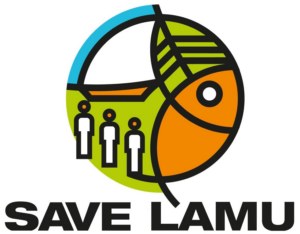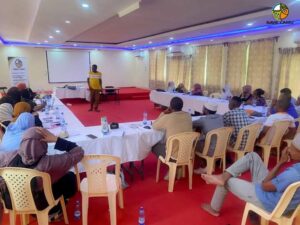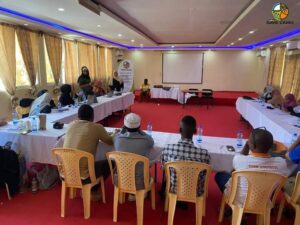The Land Control Act Cap 302 was put into practice in 1963 and aimed to control transactions in agricultural land, section 5 under the Act makes provisions for the establishment of land control boards with the responsibility of controlling all land transactions in Kenya.
The land issue is a critical yet challenging matter when it comes to communities understanding their land rights under the constitution of Kenya, for the longest time Lamu was known as a virgin land since independence, however in recent years, the Country has fostered the infrastructure and economic growth in different parts of the Country.
Getting communities to understand the Law and legislation on land and natural resources is vital information, in collaboration with the Heinrich Boll Foundation, Through facilitation from Said Salim, a community environment lawyer from natural justice, we educated youth and community representatives in Lamu on what the law says on legislation and natural resources found in Lamu, how to acquire land and the right channels to use when addressing the issues.
History is repeating itself, the LAPSSET project was granted an Environmental Impact Assessment (EIA) Licence by the National Environmental Management Authority (NEMA) without proper public participation where a section of communities was compensated and moved out of the land to pave the way for the project, in 2015 again communities were not engaged in the entire process, however, NEMA still issued a licence to the Lamu coal plant project implementer without consulting the community, therefore leading to utmost paralysis of agricultural activities in Lamu kwasasi area by not being able to practice farming in their respective lands, since the NLC wanted to acquire the land from the local farmers to construct the first-ever coal-fired plant in Lamu.
In 2019, the National Environment Tribunal (NET) during the coal plant hearing, revoked the Lamu coal plant project license, the tribunal said that NEMA issued an Environmental Impact Assessment (EIA) license to Amu Power to proceed with the project without following the law.
”We are welcoming developing projects in Lamu, and urging the investor to follow the right channels before implementing any projects, the community should be a part of the conversation from the first phase” said one of the participants on the forum held by Save Lamu on Law and legislation on land and natural resources in Amu and Mokowe areas respectively.
Article 61. (1) states that all lands in Kenya belong to the people of Kenya collectively as a nation, as communities and as individuals, therefore communities need to be involved by the project implementers from the first phase of each project. Since 2012 community outcry to government institutions like NEMA has been the issuance of licences to proposed developing projects without considering community concerns raised.
Story: Khadija Juma/Save Lamu



